Iran condemns airstrikes on Yemen, accuses US of acting on Israel’s behalf
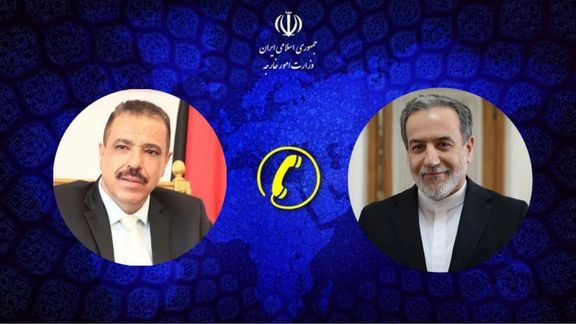
Iran’s Foreign Minister Abbas Araghchi on Sunday condemned the attacks by the US and Israel on Yemen, saying the US is acting on behalf of Israel.

Iran’s Foreign Minister Abbas Araghchi on Sunday condemned the attacks by the US and Israel on Yemen, saying the US is acting on behalf of Israel.
Speaking in a phone call with the Houthis’ top diplomat, Araghchi said the US’ Saturday air raids on Sana’a were part of a joint plan by the West and Israel “to destroy and weaken Islamic countries and dominate the region.”
The Iranian top diplomat praised “the resilience and honorable support of the Yemeni people for the oppressed people of Palestine,” referring to the Houthi rebels’ blockade of the Red Sea since November 2023 in solidarity with Hamas militants in Palestine.
“Despite all its crimes and aggressions, and its unlimited support from the US and certain other Western countries, Israel has failed to achieve its sinister goals,” Araghchi said.
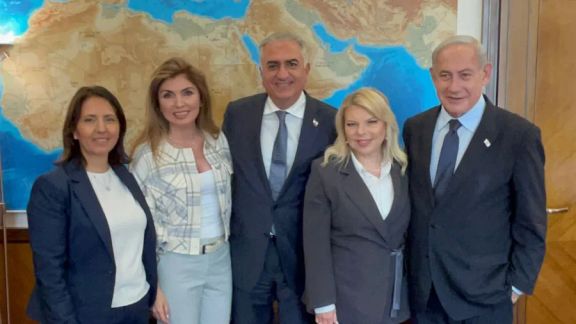
Israel's science minister Gila Gamliel says a window of opportunity has opened to oust the Islamic Republic and replace it with a new government following the recent Israeli airstrikes against Iran's military assets and the weakening of its allies.
"After we severely damaged the arms of the Iranian octopus, and it is at its weakest following the damage to the missile array and air defense - a window of opportunity has opened to overthrow the regime," Gamliel said.
"Now is the time to act together with the free world to replace the Iranian regime," she added in a post on her X account.
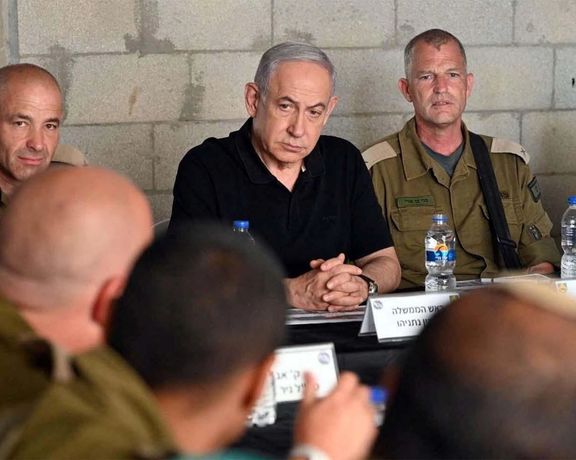
Israel's prime minister says his country will take forceful action against Yemen's Houthi rebels just as it did to other militant groups backed by Iran.
"As we acted with force against the terrorist arms of Iran's axis of evil, so we will act against the Houthis," Benjamin Netanyahu said during a meeting of the Security Cabinet in the northern Command of the army on Sunday.
"Only in this case, we are not acting alone. The United States, as well as other countries, see the Houthis as a threat not only to international shipping, but to the international order. Therefore, we will act with force, determination, and sophistication," the Israeli prime minister added. "I tell you, even if it takes time, the result will be the same result – as with the other terrorist groups."
The United States launched airstrikes against Houthi positions in the Yemeni capital Sana'a on Saturday, hours after the Tehran-aligned rebels fired a missile hitting a civilian area in Israel.
The Iran-backed Houthis, who control much of Yemen, launched a blockade of the Red Sea in November last year on the orders of Iran's Supreme Leader, following the outbreak of the Gaza war, in allegiance with Hamas.
While they originally set out to target Israeli-linked vessels in a bid to force a ceasefire, it has since spanned global commercial shipping, with multiple vessels hit in strikes and dozens of international seamen taken hostage.
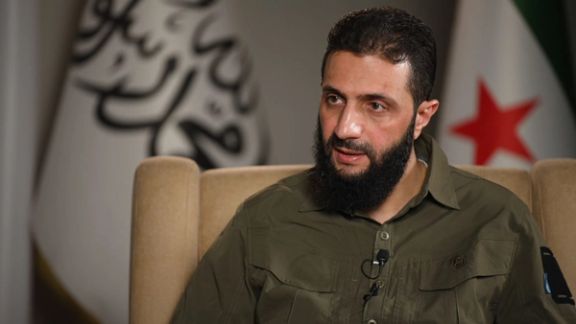
The new government of Syria has decided in recent days to prevent all Iranian planes - including civilian ones - from flying over Syrian skies, Israeli news website Walla reported on Sunday.
"The rebels' decision will make it very difficult for Hezbollah to restore its military capabilities," the report said.
Syria's de facto new leader Ahmed al-Sharaa said in a recent interview that Iran’s influence in the region has been significantly diminished by its ally President Bashar al-Assad's fall.
Sharaa, whose radical Sunni Islamist group Hayat al-Tahrir Sham (HTS) swiftly defeated Assad's forces earlier this month, told Asharq Al-Awsat that Syria's opposition had “set the Iranian project in the region back by 40 years,” signaling a major shift in Syria’s stance toward Iran.
“By removing Iranian militias and closing Syria to Iranian influence, we’ve served the region’s interests—achieving what diplomacy and external pressure could not, with minimal losses.”
Under Assad, Iran used Syria to smuggle weapons and other military equipment to Lebanon's Hezbollah. However, Hezbollah's new secretary general Naim Qassem admitted last week that the Lebanese armed group had lost its supply route through Syria.
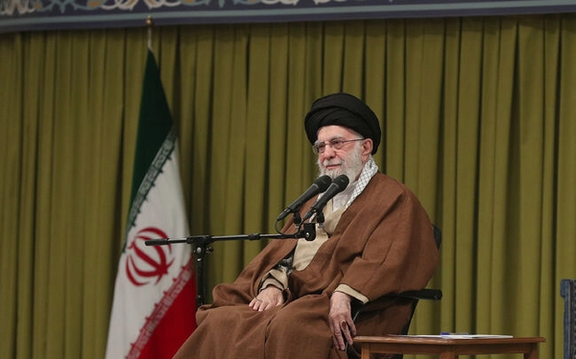
Supreme Leader Ali Khamenei denied that Iran uses proxy forces in the region, asserting that groups like Hezbollah, Hamas, and the Houthis act independently out of their own faith and beliefs, not as agents of the Islamic Republic.
In a meeting with religious eulogizers on Sunday, Khamenei addressed what he described as "absurd statements from Western and Israeli officials," dismissing the notion that Iran’s regional influence is based on the use of proxy forces.
"They constantly say that the Islamic Republic has lost its proxy forces in the region! This is another mistake! The Islamic Republic does not have proxy forces. Yemen fights because of its faith; Hezbollah fights because its faith gives it strength to fight; Hamas and Jihad fight because their beliefs compel them to do so," Khamenei said.
"They do not act as our proxies. If one day we want to take action, we will not need any proxy forces."
Khamenei's comments come amid ongoing tensions surrounding Iran’s involvement in regional conflicts, particularly in Syria, where Tehran used militias for many years to further its geopolitical interests but to no avail.
Iran has labeled the Lebanese Hezbollah, Yemen's Houthis, the Assad government and a hodgepodge of paramilitary groups in Iraq as the "Resistance Front," and began to speak more directly of a united front since the Hamas attack on Israel in 2023. In September, Iran's Foreign Minister Abbas Araghchi said, “The government’s policy is to provide unlimited support to the resistance. We will support the resistance front, which has established itself as a reality in the region. The regime [Israel] has so far failed to achieve its main goal of destroying Hamas.”
The commander of the Revolutionary Guard’s Quds Force, Esmail Qaani, said in May, that Iran has humiliated Israel by organizing the 'Islamic resistance.' “At this point, Israel has reached a level of humiliation that it has surrounded itself with barbed wire and radars to prevent infiltration,” Qaani told a gathering of young clerics.
Iran’s involvement in Syria has been one of its most significant and costly regional ventures. The Islamic Republic invested between $30 and $50 billion in financial and military support to sustain the government of Bashar al-Assad who was overthrown by the armed groups and fled to Russia this month.
Iran's aid included sending elite military units, weapons, and advisers to help counter rebel factions. This support was not only about military might but also tied to Tehran's strategic interests, particularly maintaining influence in the Levant and ensuring the continuity of the Axis of Resistance — a network of allies in Syria, Lebanon, Iraq, and Yemen.
Khamenei also warned that those within Iran who align themselves with foreign powers, particularly the United States, would face severe consequences.
"The fools smell the scent of kebab," Khamenei quipped, using a metaphor to describe what he sees as misguided ambitions from those in Iran seeking to overthrow the Islamic Republic. "Anyone inside the country who chooses to serve the Americans, the Iranian people will trample them underfoot."
Syria’s future: Khamenei’s optimism amid setbacks
Turning to Syria, Khamenei expressed confidence in the resilience of the Syrian people, despite the fall of his long-time ally Bashar al-Assad. He predicted that a group would rise to lead Syria out of its instability.
"The young Syrian has nothing to lose. His university is unsafe, his school is unsafe, his home is unsafe, his street is unsafe, his life is unsafe. What should he do? He must stand strong and determined against those who designed this insecurity and those who implemented it, and God willing, he will triumph over them," Khamenei said.
Despite the dire picture painted by Khamenei, there have been no reports of major incidents in Syria since the current leadership took control in Damascus, except tensions between Turkish-back forces and Kurds in the north.
Despite Iran’s immense efforts to secure Assad’s government, the situation in Syria remains precarious after his fall with the rise to power of armed groups who say are going to establish a democratic government in Syria.
Iran has faced significant setbacks in recent years, not only in Syria but also through its proxy networks. Groups like Hamas and Hezbollah have faced challenges, and the broader Middle East continues to see shifting alliances and power dynamics.
Despite these challenges, Khamenei expressed optimism for the future of Syria and the region, saying, "The future of the region will be better than today, by the grace of God."
Khamenei's remarks come at a pivotal moment for Iran, as the country faces mounting pressure from both regional and global powers, particularly the United States and Israel. His speech reflects Tehran's continued defiance of foreign influence, especially in Syria.
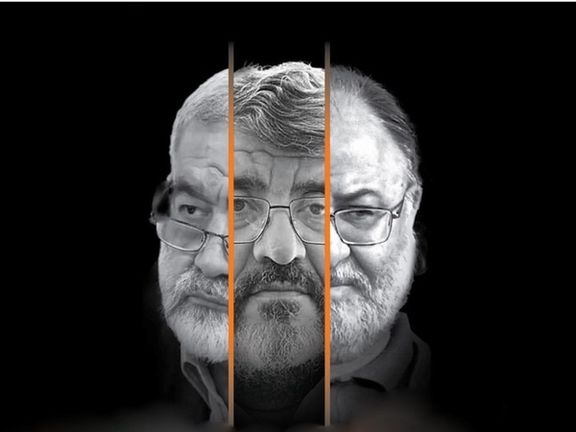
A newspaper linked with Iran’s Parliament Speaker has slammed what it called “super-revolutionaries" or ultra-hardliners for publicly opposing “official and revolutionary institutions.”
“The recent statements of [Sadegh] Koushki, [Mehdi] Ghazanfari, and [Foad] Izadi can be seen as the emergence and expression of a tendency in the right-wing that poses a radical reading of revolutionism against revolutionary rationality and official and revolutionary institutions,” Sobh-e No (New Dawn), a daily linked to Parliament Speaker Mohammad-Bagher Ghalibaf wrote Monday.
The statements referred to by Sobh-e No were mainly focused on foreign policy including Israel’s attacks on Iran's allies in the region, ultra-hardliners’ demand to sack Mohammad-Javad Zarif, the vice-president for strategic affairs, and the implementation of a new hijab law that President Masoud Pezeshkian's administration insists cannot be implemented amid nationwide and global backlash.
The newspaper dedicated a large part of its front page to a photo montage of the three ultra-hardliners’ images with the headline “Super Revolutionism’s Leap to Deviate Revolutionism”.
“The statements Kuskhi, Izadi, and Ghazanfari have made in recent days can be taken as the manifesto of super revolutionism,” Sobh-e No wrote.
On social media on December 10, Koushki alleged that Pezeshkian’s government is bending to foreign demands.
“Next, with completion of negotiations with the US and Europeans, the [government] will surrender [the Islamic Republic’s] missile capabilities and the rest of the Resistance Axis to the enemy, [this is the] like entering Damascus and the finalization of their mission,” he wrote.
The so-called “super revolutionaries” that Sobh-e No has referred to in its editorial have strong links to the Paydari (Steadfastness) Party and Jebhe-ye Sobh-e Iran (MASAF), which was established less than a year ago. They often refer to themselves as 'arzeshi' or guardians of the Islamic Republic's values.
Both groups have very close ties to the ultra-hardliner former nuclear negotiator Saeed Jalili who lost the recent presidential elections, and cleric Ayatollah Mohammad-Mehdi Mirbagheri who is known for having a radical interpretation of Sharia law, with pro-Russia, pro-China political tendencies.
Members of the Paydari Party and MASAF and their supporters are not only intensely critical of President Masoud Pezeshkian and his government but also often attack Ghalibaf and his supporters, too.
Arzeshi groups have been campaigning on social media for “True Promise 3”, a retaliation for Israel’s 26 October attack on multiple locations in Iran, and accusing authorities of negligence of their promise not to leave it unanswered.
Around 50 vigilantes linked with these groups staged a protest in Tehran Sunday demanding that authorities take military action against Israel. “We order the authorities to raze Tel Aviv and Haifa to the ground. If you don’t attack, we, the people who voted for you, will get rid of you,” the speaker of the rally declared.
Since Bashar al-Assad’s ouster in Syria, arzeshi groups have been venting their frustrations against the Revolutionary Guards (IRGC) Quds Force commander, Esmail Qaani, in closed groups such as the homegrown Eitaa cast platform and on Telegram.
In a post on X earlier this week, Mohammad Marandi, an advisor to Iran’s nuclear negotiating team during the presidency of Ebrahim Raisi, who also has close ties with the ‘arzeshi’ groups, said Qatar should be bombed if the US targeted Iran's nuclear facilities.
Marandi is a frequent voice in international media defending Tehran’s policies as well as in the state-run television currently controlled by ultra-hardliners.
He wrote: "Slight problem. The US Al Udeid air base in is tiny Qatar. In case of aggression, the natural gas facilities and infrastructure in Qatar will be totally destroyed. Hence, there will be no natural gas from Doha. Hence, there will be no Qatar. Things won’t end there either…”